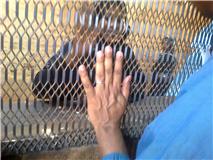Index relies entirely on the support of donors and readers to do its work.
Help us keep amplifying censored voices today.
The Indian government’s proposal to the United Nations General Assembly, to form a 50-member United Nations Committee on Internet Related Policies (CIRP) to “regulate” the internet has been met with controversy since it was tabled last October. On 19 September, one of India’s leading industry bodies, the Federation of Indian Chambers and Commerce Industry, FICCI, held a panel discussion bringing together government, business groups and civil society for the first time to debate the proposal.
Currently, a US-based nonprofit called the Internet Cooperation for Assigned Names and Numbers (ICANN) coordinates Internet domain names and IP addresses; with a sophisticated system of councils set up to address the concerns of various stakeholders (corporations, governments, Internet user groups, etc.) across the world.
The United Nations have joined human rights groups in calling for reform of Thailand’s notoriously harsh Lèse Majesté laws. The calls urging the Thai authorities to reform the harsh laws relating to insulting the monarchy follow the recent imprisonment of 61-year old grandfather Ampon Tangnoppakul.
Navi Pillay, the UN High Commissioner for Human Rights suggested that: “Guidelines should be issued to the police and public prosecutors to stop arresting and charging individuals under these vaguely worded laws.” Around 100 supporters of Tangnoppakulalso made a rare public protest outside the Criminal Court in Bangkok against the laws.
 As journalists are jailed and fined for reporting on the rape of a human rights campaigner, Abdelgadir Mohammed Abdelgadir reports on press freedom in Sudan
As journalists are jailed and fined for reporting on the rape of a human rights campaigner, Abdelgadir Mohammed Abdelgadir reports on press freedom in Sudan
The United Nations special rapporteur for free expression Frank La Rue has called for the abolition of criminal defamation laws. Guatemalan lawyer La Rue also condemned the use of “national security” reasons to curb free expression:
In a report released today, LaRue comments:
The Special Rapporteur reiterates the call to all States to decriminalize defamation. Additionally, he underscores that protection of national security or countering terrorism cannot be used to justify restricting the right to expression unless it can be demonstrated that: (a) the expression is intended to incite imminent violence; (b) it is likely to incite such violence; and (c) there is a direct and immediate connection between the expression and the likelihood or occurrence of such violence.
Criminal defamation cases are frequently brought to silence criticism of authorities. Recent examples include actions brought against journalist Art Troitsky in Russia and anti death penalty campaigner Alan Shadrake in Singapore.